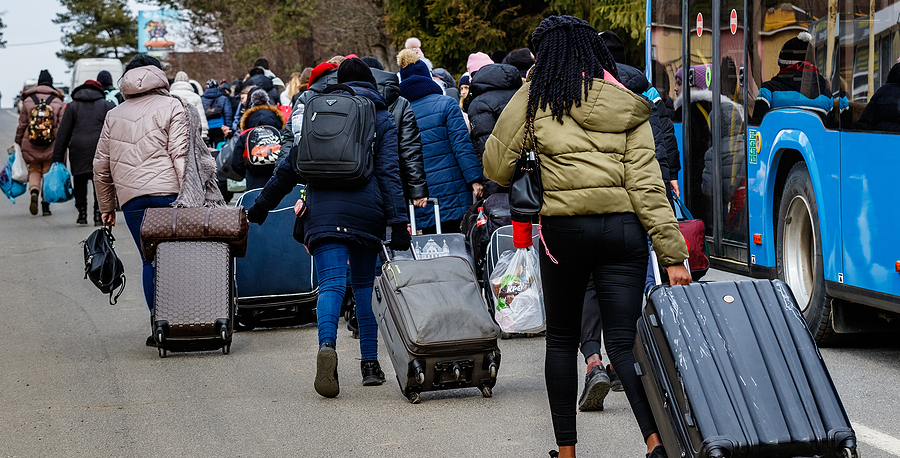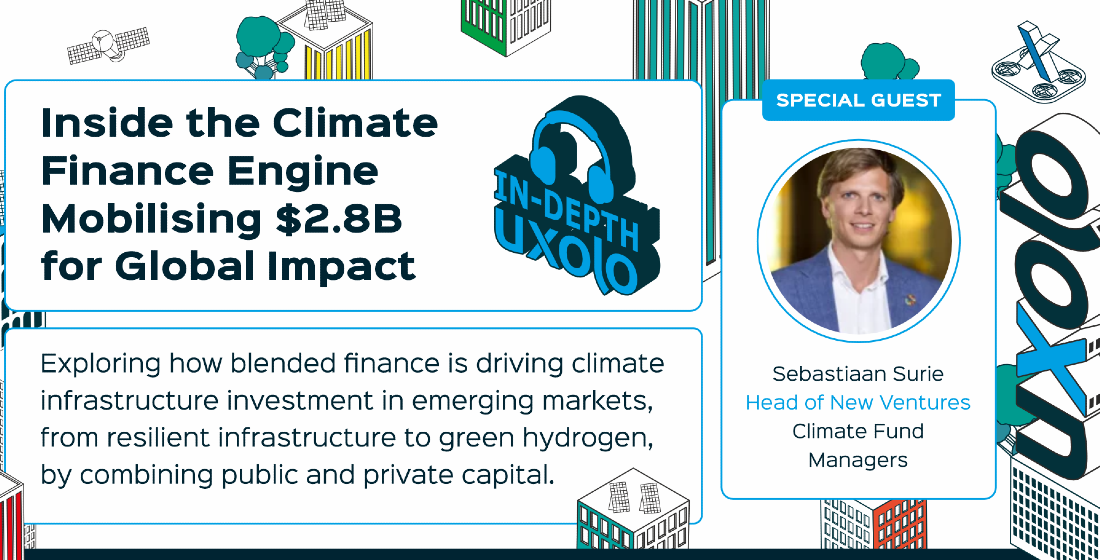DFIs step up support for Ukrainian refugees
Learning from their experience of supporting Syrian refugees in 2015, Germany’s KfW has swiftly replicated the financial model to house Ukrainian refugees.

In the three weeks since Russia invaded Ukraine, over three million people have fled the country, according to the latest UNHCR data, with most seeking asylum in neighbouring Poland and Romania. Accommodating the sudden arrival of a large number of Ukrainian refugees has been an economic challenge for host governments in Europe, putting pressure on public finances and infrastructural support – particularly health care, which remains in short supply as the COVID-19 pandemic continues into its third year.
For German state-owned development bank KfW, lessons learnt from supporting Syrian refugees who fled the Bashar al-Assad regime in 2015 have come in useful to quickly set up a similar financing template for Ukrainian refugees. KfW’s strategy is to strengthen local German municipalities' ability to build refugee housing infrastructure by providing €250 million (roughly $276 million) of medium to long-term affordable loans at an interest rate of minus 0.75 %.
The tenor of the loan can be up to 20 years with a grace period of up to three years and the fixed interest rate is for 10 years. “But if the municipalities want loans for a shorter duration, there's no problem with that,” says Markus Schönborn, department director, product management municipal and social infrastructure, KfW. The maximum loan amount is generally €25 million.
Launched under KfW’s Special Refugee Facilities Programme, the special funding for municipalities runs through the established IKK Investment Loans for Municipalities Programme. The normal interest rates under the IKK programme range from 0.73 to 1.36%.
The term of the Special Refugee programme is limited and runs until 31 December 2022. Municipal companies and non-profit organisations can use the working capital variant of the IKK Investment Loans for Municipal Enterprises programme for refugee aid measures.
Building a template
Since 2015, KfW has been building special funding for refugee accommodation by providing a credit volume of €1.5 billion, which has been fully allocated. The short-term loan to municipalities can be invested in the construction of new buildings and refurbishment of existing ones, in modernisation projects or in the purchase of accommodation for refugees. “In 2015, the German municipalities were not ready for the arrival of the huge number of refugees, in terms have having the infrastructure to support them,” says Eva Witt, senior VP for Individual & Public Clients. “But now, almost six years later they are better equipped but the demand for this loan is still there, and that’s why we provided a volume of €250 million.”
In 2021, KfW used a similar model of funding for local municipalities to help build infrastructure destroyed by floods in western parts of Germany. “The setting up of the programme then helped us replicate the same modalities swiftly for the arrival of refugees and migrants from Ukraine, because the municipalities were already familiar with this programme,” adds Witt.
It's been less than a week of extending the programme for housing Ukrainian refugees and KfW has received 17 applications with a total volume of €51 million, as of March 16. There is a wider demand for infrastructural support from municipalities in dense urban regions of Germany as compared to sparsely populated rural areas. Medium and long-term support will be needed for the provision of public services, both for refugee and host communities, and labour market access for refugees.
Integration of refugees requires long-term investment and supportive policies like language and cultural integration, which is expected to take a toll on governments receiving Ukrainian refugees. For instance, in 2016, Germany spent approximately €12,000 per refugee per year, not including language and cultural integration classes, according to the Centre for Global Development.
Institutional support for refugees
In the last two weeks, DFIs and MDBs have stepped up to support Ukrainian refugees, most providing aid in the form of grants. For instance, the Council of Europe Development Bank (CEB) approved a €150000 grant from its Migrant and Refugee Fund (MRF) to the International Organization for Migration (IOM) Slovakia to support incoming refugees and third-country nationals from Ukraine. While EBRD unveils €2 billion resilience package for Ukraine last week, only a fraction of it will go towards supporting refugees.
The World Bank Group is preparing a $3 billion package of support for Ukraine in the coming months and additional support to neighbouring countries receiving Ukrainian refugees. In a virtual event hosted by the Washington Post, World Bank president David Malpass said that he hoped to finalise the $3 billion package within six to eight weeks.
In 2016, in support of Syrian refugees, the World Bank set up the Global Concessional Financing Facility (GCFF), which provides concessional financing to middle-income countries hosting large numbers of refugees. Ukraine’s neighbouring countries like Poland, Romania and Slovakia could benefit from a similar concessional funding facility in the long term. Adjusted for the cost of living in neighbouring Poland and the estimate of four million refugees, support for Ukrainian refugees could cost hosting states as much as $30 billion over the next year, according to the Centre for Global Development. The Ukraine conflict is also likely to affect migrants in Central Asian countries like Azerbaijan, Armenia, Tajikistan, and Uzbekistan which are dependent on remittances from Russia.
The Ukraine-Russia war could not have come at a worse time for development banks and financial institutions as they struggle to recover from the economic impact of the Covid-19 pandemic. The war has aggravated the impact of Covid-19 on the economics of emerging markets, with its impact being felt on the most vulnerable groups. According to Uxolo data, over 12% of DFI and MDB deals in the last two years have been COVID-19 related. For instance, KfW alone has allocated around €57 billion from March 2020 to the present for pandemic relief work. “Our balance sheet certainly increased due to the Covid-support measures, however, for those measures the German government provided us the funds needed and bears the risks,” says Witt. “At the moment for our general funding programme, because of the geopolitical situation, we do not see any negative effects on our funding opportunities or our access to the capital market. In contrast, we are still perceiving an enormous investor demand for our bonds, which has not been dampened since the Russian invasion. Due to the direct statutory guarantee by the Federal Republic of Germany, KfW bonds represent a safe haven investment for investors. We have increased our liquidity somewhat and have already raised over 40% of our funding target of €80-85 billion - more than usual at such an early point in the year.”





